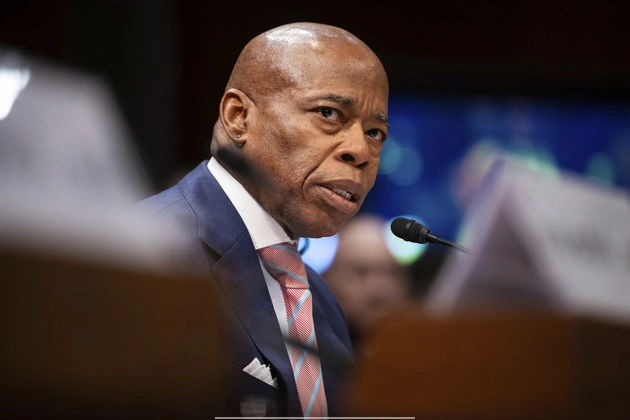
New York City Mayor Eric Adams faces criticism from city officials regarding a memo outlining procedures for dealing with federal immigration agents. The directive instructs staff to allow U.S. Customs and Immigration Enforcement agents into municipal facilities if they feel threatened or fear for safety.
Concerns from City Council Speaker and Advocates
New York City Council Speaker Adrienne Adams, along with Council members Diana Ayala and Alexa Avilés, disapprove of the memo, labeling it as irresponsible and dangerous. They believe it gives special treatment to actions by the Trump administration’s agencies, betraying New Yorkers’ trust.
Reactions from Public Advocate and Labor Organizations
Public Advocate Jumaane Williams also criticized the directive, stating that it puts city employees at risk and may escalate violence from ICE towards workers and immigrant communities. The memo had previously sparked disagreements with 32BJ, a prominent labor organization and mayoral ally.
The memo, issued on Jan. 13, aimed to provide clarity on dealing with immigration authorities to prevent city employees from facing arrest. The Law Department crafted the memo after agencies expressed a need for guidance in potential confrontations with federal agents.
Legal Perspective and Employee Safety
Adam Cox, an immigration law expert from New York University, highlighted the importance of employees understanding their rights when interacting with law enforcement. Typically, ICE agents require a judicial warrant to enter private spaces, and employees are advised to request documentation before compliance.
City Hall emphasized that the memo aims to safeguard city workers’ safety by providing clear instructions, including requesting legal documentation and seeking guidance from city attorneys.
Concerns Over Decision-Making Process
Critics find it unusual that the memo suggests decisions should be based on fear rather than legal requirements. This approach raises questions about the directive’s effectiveness in ensuring employee safety and compliance with the law.
As the debate continues, it remains crucial for city officials to address concerns raised by various stakeholders and ensure that policies align with legal standards and community expectations.















